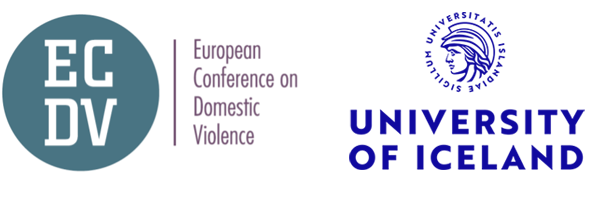
Guðrún Kristinsdóttir is professor emerita at the School of Education, University of Iceland. Guðrúnhas cooperated most with partners in Northern Europe, working in Denmark, Iceland, and Sweden, furthermore with colleagues in Australia and Canada. She is a former Associate Professor, University of Warwick, UK; earlier a board member of Gender Studies, Umeå University, Sweden, was a longstanding EB of the journals Nordisk Sosialt Arbeid, and Nordic SW Research. She has worked in projects financed by the Nordic Council of Ministers, and on tasks for several health and social authorities, and NGO’s. Main research areas: Gender and IPV; children’s well-being and child foster care. She is author of books and articles and editioned an awarded book on children’s perspectives on DV. Recent writings are handbook on DV for school staff, a guidance on children’s research participation and a study on male perpetrators of IPV. Guðrún engaged in establishing the Swedish and the Icelandic SW Research Associations. She participated in feminist activist projects, from the 1970’s onwards.
Intimate partner and employment-based violence in Iceland in precarious times: Two research projects
Globally, violence against women has increased during the COVID-19 global pandemic and raised new barriers to building inclusive societies. Furthermore, political, and ideological crises arising from the Ukraine war have raised further challenges. In the context of Iceland, there has been a 30% increase of police notifications of domestic violence during the last two years, compared to last 5 years average. Similar increase was observed for sexual abuse notifications against children. This paper draws on two research projects on violence against women funded by The Icelandic Research Fund and The Gender Equality Fund. Both encompass various albeit important perspectives. Empirical aims are general, to add to knowledge on domestic violence against women as well as structurally related aspects of violence. Practical aims are to inform policy by highlighting what works well in support measures. The first project focuses on perpetrators of violence in intimate relationships, drawing attention to factors such as masculinity, fathering, young people, and discursive formations of violence and subjects of violence. Data is based on interviews, discourse analyses of mass media material and surveying statistics. The second project focuses on intimate partner and employment-based violence of (im)migrant women. It aims at understanding the depth and prevalence of physical, racial, and psychological violence against immigrant women in Iceland. Data is based on survey findings, narratives, and interviews with immigrant women and service providers, and a critical discourse analysis of mass media and legal proceedings. Topics of these two projects are understudied in Iceland. In both projects, we employ a nuanced analysis, to simultaneously understand experiences and provisions. It is imperative to analyse hidden factors that reproduce and maintain values that legitimize use of power and control that lead to various forms of violence and to contextualize findings, among other as regards prevailing precarity of current times.

